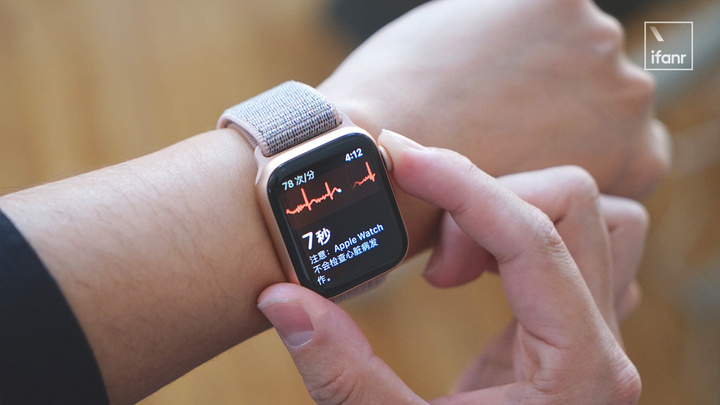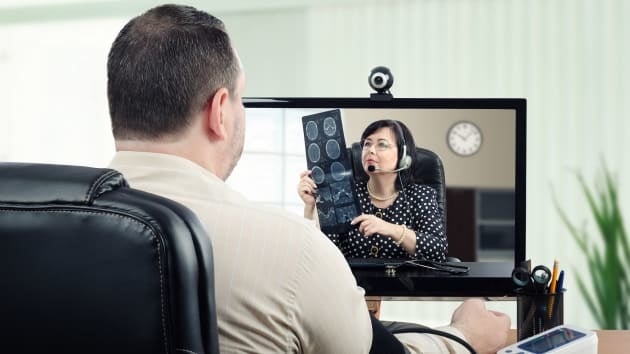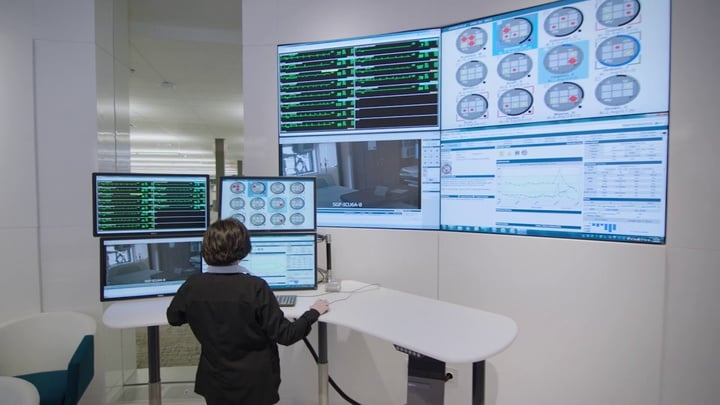Health-related features have gradually become the core of wearable products, recently There is news that Apple will add sleep tracking to Apple Watch. In fact, Apple’s three major health features last year have announced that Apple Watch’s positioning has shifted from fashion consumer goods to sports health. .

More and more of our body’s data can be collected through wearable devices, but it’s not enough. In addition to data collection, medical institutions and consumers should be able to make full use of these data as part of disease treatment and care.

▲ Image from: health it security
The wearable medical device used to be a neglected market, but it has a huge need. For the average user, measuring heartbeat and sleep quality may be optional.
But for patients with chronic conditions, a wearable device that continuously monitors their body data in real time is likely to extend their lifespan.
The most need for wearable devices, may be chronically ill patients
According to World Health Organization data, chronic disease is by far the leading cause of death in the world, accounting for all deaths 63%. In 2012 alone, there were as many as 38 million deaths worldwide due to chronic non-communicable diseases, including 8.5 million in China.
▲Image from: AAMCNews
At present, there are at least 260 million people with chronic diseases in China, which is only the data as of 2016. According to the 2014 China Health and Family Planning Statistical Yearbook, the Chinese from 2003 The incidence of diabetes increased by 7 times between the years of 2013 and 2013, and the incidence of hypertension increased by 6 times.
After 6 years, today, various high-sugar teas and take-away services have become the lifestyle of many people. The incidence of these chronic diseases will only increase, and the young people with chronic diseases are more and more many.

So what changes can wearables bring to these chronically ill patients?
If the accuracy of wearable device monitoring can reach the medical level, it means that hundreds of millions of chronically ill patients can monitor their physical condition anytime and anywhere. After sharing these data with doctors, they can get medical advice from remote doctors. At the same time, it also relieves the pressure of family members’ care.
In fact, modern medicine is increasingly dependent on the collection and analysis of human data. It is even more important for medical institutions to keep track of the patient’s physical condition after the patient is discharged from the hospital.

American cardiologist Eric J. Topol points out that past medical data relied on population mean and median under the statistical framework, which did not take into account heterogeneous differences between individuals and therefore caused some Improper treatment.
Eric J. TopolIt is believed that the future medical information will focus on the individual, and each person’s body data can be fully excavated. The vital signs such as blood pressure, heart rate, respiratory rate and depth, body temperature, blood sugar and brain waves can be digitized at high time. deal with.

To carry this future, there will be progressive wireless biosensors that will emerge as wearable devices.
Wearable devices for chronic diseases are becoming the new track for technology companies
The most desirable form of wearable device for the medical field is an electronic tattoo like a skin. In the recent future series of previous article, Ai Faner described in detail that this “electronic tattoo” can even change color. To feedback changes in physiological indicators.
However, such devices are very demanding on electronic components, and large-scale commercialization cannot be achieved in a short time. Before this, is it possible for patients with chronic diseases to improve their physical condition through wearable devices?
Although the market for wearable medical devices is still small, some technology companies have begun to develop wearable devices for chronic diseases. This demanding, long-neglected market has become a new entrepreneurial track.
United States BayThe district’s intelligent health testing platform Myia Labs is one of them. The company team consists of doctors, designers and engineers to provide medical institutions with Monitor wearable devices for patients with chronic conditions.

After working with the hospital, Myia will provide a wearable device package for chronically ill patients, including a tablet, Omron’s sphygmomanometer armband, heart rate monitors, rings and equipment to track sleep and exercise Oura.
According to Myia Introduction , these devices are simple to operate and are currently targeted at patients with chronic diseases such as heart failure, reducing their emergency visits to patients with postoperative conditions such as heart failure.The number of times, and try to make a prediction before the patient’s onset.

▲Image from: CNBC
This startup, founded in 2017, has received nearly $17 million in financing so far, and one of the investment institutions is the American College of Cardiology, which is equivalent to giving Myia an authoritative endorsement.
Although Myia has not yet fully demonstrated that its wearables have significantly improved the condition of chronically ill patients, the medical industry has begun to agree with this direction.

